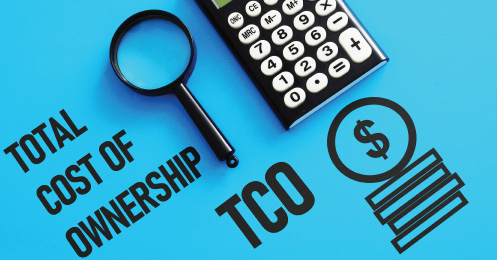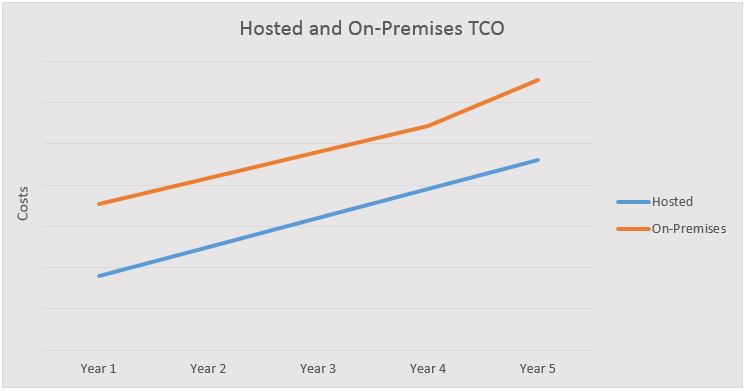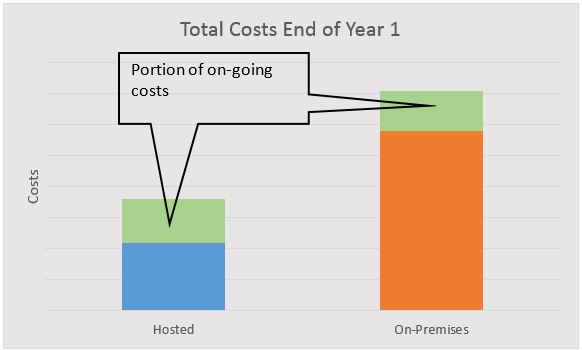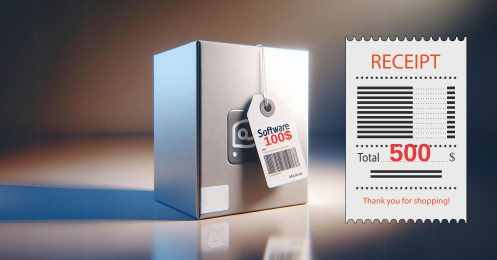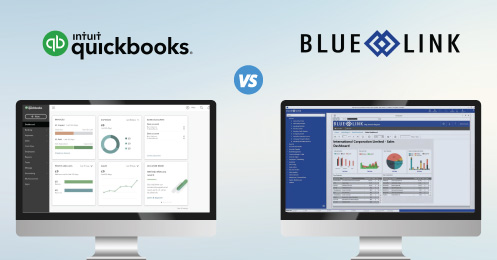In today's fast-paced business environment, choosing the right ERP (Enterprise Resource Planning) system can make or break your company's efficiency and productivity. One critical factor to consider when selecting an ERP solution is the total cost of ownership (TCO). This blog post will explore the ERP cost of ownership, comparing hosted (cloud-based) and on-premises solutions to help you make an informed decision.
What is ERP Cost of Ownership?
ERP TCO measures the full cost of using an ERP system over a period, including not just the purchase price but also the costs of implementation, operation, and improvement throughout its life cycle. TCO is a key component of evaluating the return on investment (ROI) of an ERP system. By subtracting TCO from the financial value of business benefits (like increased sales, reduced expenses, and higher productivity), you can gauge the true value an ERP system brings to your company.
Hosted vs. On-Premises ERP Solutions
When your business decides to purchase an ERP system for inventory and accounting, the great debate remains: should you implement a hosted solution or on-premises? For smaller organizations, the answer is often obvious—when you compare the total cost of ownership per year, hosted software will almost always end up being the most economical choice. However, there are scenarios where on-premises solutions might be more suitable, especially for larger organizations or businesses in rural locations without reliable internet connectivity.
Either way, it is important to fully understand both options and the implications they will have for your business. Hesitation regarding hosted software frequently stems from a lack of understanding and concerns regarding data security issues. However, even though data security will vary by the software vendor, the security and provisions put in place by vendors in general will be more than what you can provide in an on-premises environment.
Hosted ERP Solutions
Year 1 Costs:
- Initial implementation and setup
- Monthly license fees
- Support
Ongoing Costs:
- License fees
- Support
- Maintenance and upgrades (included in monthly fees)
Benefits of Hosted ERP Solutions:
- Lower Upfront Investment: A subscription-based cost structure allows businesses to spread out their expenses over time rather than making a large initial investment. The costs of the system are broken down into a one-time implementation and set up fee and then on-going monthly fees
- Maintenance-Free: The software provider handles IT maintenance and data backups, reducing the need for powerful server hardware.
- Predictable Costs: Subscription-based monthly fees provide a predictable expenditure schedule, ideal for small businesses with limited budgets.
On-Premises ERP Solutions
Year 1 Costs:
- Initial implementation and setup
- License fees
- Support
- Hardware and equipment purchases
Ongoing Costs:
- System infrastructure management
- Support
- Maintenance
- Server and equipment replacements (every 5 years on average)
- Data backups, performance monitoring, patch installation, and other software license purchases
Benefits of On-Premises ERP Solutions:
- Control: Greater control over data and system security.
- Customization: Easier to customize the system to meet specific business needs.
- Scalability: Often better suited for larger organizations with existing IT infrastructure.
Hidden Costs of ERP Implementation
When calculating ERP TCO, it's essential to consider hidden costs, such as:
- Internal Resource Allocation: The use of internal resources to staff the project can lead to productivity declines in other areas.
- Training: Training employees to use the new system can be time-consuming and costly.
- Customization: Customizing the ERP system to fit your specific needs often incurs additional costs.
Evaluating ERP TCO Over Time
For those smaller organizations that choose to implement on-premises based software, the management of servers is frequently outsourced to a 3rd party IT company or someone is hired for the role. This adds extra costs to an already expensive project and takes resources away from growing the business and managing existing customers, to managing IT. For larger organizations, there is frequently already a team of in-house IT personnel who are able to dedicate their time to server and equipment management.
To make an informed decision, it's crucial to evaluate the TCO over at least a 5-year period. Implementing an ERP system is a long-term investment, and understanding the ongoing costs associated with each option will help you choose the most economical and effective solution for your business.
Conclusion
Technology and the business environment are two of the fastest changing aspects of our world and so it is increasingly important to make sure that your business is always taking advantage of the best that your software has to offer and that your software matches the business requirements of the time. Trying to save money by not upgrading your hardware or system on a regular basis can affect company performance and your bottom line. When used and maintained properly, software becomes a strategic investment to help run and grow your business. As a small business it is especially important to invest in a system and software vendor that can become a trusted business partner, offering expert advice to help your business save costs, increase efficiency and take advantage of new opportunities.
Choosing between hosted and on-premises ERP solutions depends on your business's specific needs and circumstances. For smaller organizations, a hosted solution often provides a more economical and maintenance-free option. In contrast, larger businesses with existing IT infrastructure might benefit more from the control and customization offered by on-premises solutions.
Ultimately, understanding the ERP cost of ownership and evaluating it over time will help you make a strategic investment that supports your business's growth and efficiency.
If you want to learn more about selecting the right ERP system for your business, contact our experts today. We're here to help you find the best solution tailored to your unique needs.
